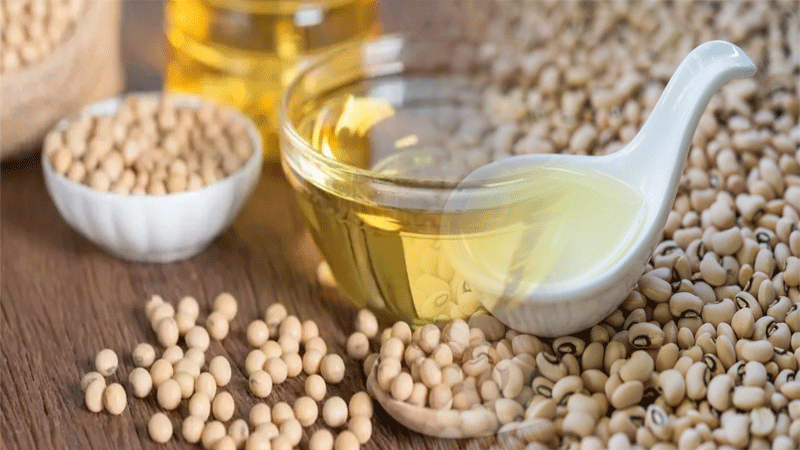The most well-known phytochemicals in soybeans are the isoflavones, often referred to as “phytoestrogens” because they have a structure similar to the hormone estrogen.

Cardiovascular disease is a major cause of death worldwide, and prevention and management of this disease are significant public health concerns. Recent research has shown that soybean oil may play a beneficial role in reducing the risk of heart disease by reducing inflammation, oxidative stress, and cholesterol levels. This has led to an interest in the role of soybean phytochemicals in cardiovascular disease prevention.
Soybean oil is a significant source of dietary fat and is commonly used in cooking and food processing. It is rich in unsaturated fatty acids, particularly linoleic acid, which has been shown to favor lipid metabolism and heart health.
Soybean oil also contains a range of phytochemicals, including tocopherols, phytosterols, and isoflavones, which have been shown to have antioxidant and anti-inflammatory properties.
The most well-known phytochemicals in soybeans are the isoflavones, often referred to as “phytoestrogens” because they have a structure similar to the hormone estrogen.
Studies have shown that isoflavones can improve lipid profiles, reduce inflammation, and lower blood pressure, all of which are risk factors for heart disease. Isoflavones may also improve endothelial function and are an important marker of cardiovascular health.
Phytosterols are another essential phytochemical found in soybean oil. These compounds are similar in structure to cholesterol and can compete with it for absorption in the digestive tract. This can lead to lower circulating cholesterol levels, a significant risk factor for heart disease.
Tocopherols, a type of vitamin E, are also found in soybean oil. These compounds have antioxidant properties, which means they can help reduce oxidative stress and inflammation.
Overall, the research on soybean oil and cardiovascular disease prevention is promising and suggests that soybean phytochemicals play an essential role in reducing the risk of heart disease. However, it is important to note that soybean oil in the diet should be balanced with other sources of fat and be part of an overall healthy dietary pattern.
More research is needed to fully understand the mechanisms by which soybean phytochemicals may benefit heart health and to determine the optimal amounts of soybean oil and other soy products for heart disease prevention.